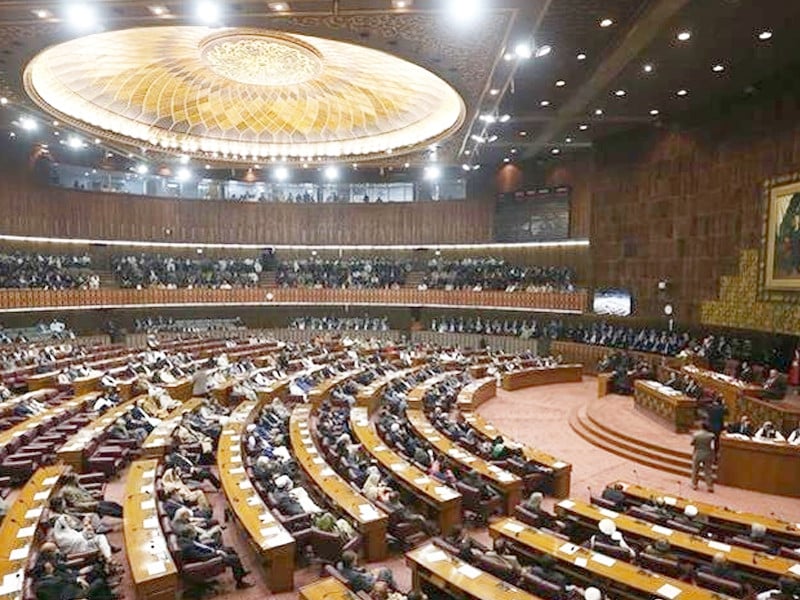
After several delays, the Senate commenced voting on the 26th Constitutional Amendment Bill, also known as the Constitutional Package, and eventially passed it on Sunday. The legislation proposes a series of amendments, including an extension of the Chief Justice’s term.
The bill, which had been previously approved by the federal cabinet with the consensus of coalition partners, was presented in the Senate by Law Minister Azam Nazeer Tarar. During the opening of the session, Senate Chairman Yousaf Raza Gilani read out the contents of the amendment bill before lawmakers cast their votes.
Under the new amendment, the term for the Chief Justice of Pakistan has been set at three years. A 12-member parliamentary committee will select the new Chief Justice from a panel of the three most senior judges.
This committee will consist of eight members from the National Assembly and four from the Senate, and it will propose a name to the prime minister, who will then forward it to the president for final approval.
The bill proposes a range of amendments, including the crucial fix of the Chief Justice of Pakistan's tenure at three years. Law Minister Azam Nazeer Tarar addressed the media ahead of the Senate vote, clarifying speculations surrounding this change.
Amid speculation regarding the extension of the Chief Justice’s tenure, Tarar clarified that Chief Justice Qazi Faez Isa had expressed no interest in extending his term. “During the three meetings that I had with the top judge, he reiterated his disinterest in the extension of his tenure, saying that any amendments would come into effect after his retirement,” Tarar stated.
During a press conference at Parliament House, flanked by Information Minister Attaullah Tarar, the law minister elaborated on the bill’s key components. One of the major reforms included the formation of a constitutional bench through a new judicial commission, led by the Chief Justice of Pakistan.
This commission, in contrast to previous practices, would consist of the CJP, four senior-most Supreme Court judges, two senators, and two MNAs—one from the opposition—to ensure broader representation. Tarar added that both he and the attorney general would also serve on the commission.
Tarar further stated that marginalised communities, including women and minorities, would be represented by individuals appointed by the National Assembly Speaker. Moreover, the bill allows for the inclusion of a technocrat, providing expert input from outside the parliament.
In terms of judiciary reforms, he announced the introduction of a performance evaluation system for judges, aimed at addressing long-standing issues of inefficiency and delays in the judicial process. “People often complain that their cases are pending for up to 10 years,” he said. “This judicial commission will ensure nationwide performance standards for high court judges.”
He stressed the importance of rewarding judges who perform well while addressing concerns about underperformance after judges receive confirmation. “We need to ensure that taxpayer money is being well-spent,” Tarar remarked. “Inefficiency cases will be referred to the Supreme Judicial Council.”
Additionally, a Judicial Commission of Pakistan, led by the Chief Justice and including three senior judges, two members each from the National Assembly and Senate, the Federal Minister for Law and Justice, the Attorney General, and a legal expert with at least 15 years of experience in the Supreme Court, will oversee judicial appointments.
1729149614-0/BeFunky-collage-(65)1729149614-0-405x300.webp)
















COMMENTS
Comments are moderated and generally will be posted if they are on-topic and not abusive.
For more information, please see our Comments FAQ